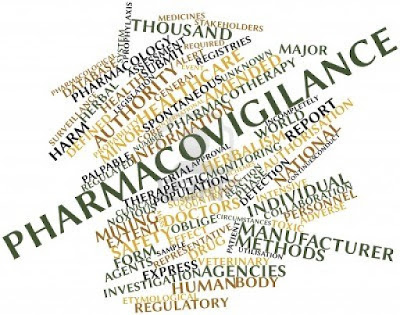PHARMACOVIGILANCE
Pharmacovigilance (PV)
is the science dealing with the detection, reporting and prevention of long and
short term adverse effects of drugs. A vast amount of adverse drug reactions
can reduce the quality of life, increase hospitalization stays and increase the
risk of death rates. Adverse drug reactions are projected to be 3-7% of
hospital admissions in the US. The main universal obstacle is the
under-reporting of adverse drugs reactions that can be due to the lack of time
and report forms . WHO has defined adverse drug reactions by "harmful or
unintended reaction to a medication happens at a standard measurement".
ADRs
are mainly classified to Type A and Type B. Type A response is connected with
the pharmacological activities of the medication and unlisted/unexpected
adverse drug reaction. While Type B response is listed/expected adverse drug
reaction. Type A response is 80% more major and common than Type B reaction.
ADRs relate to mortality. Recent estimations show ADRs are the 6th real reason
for death in the United States of America (USA). For every medication, one must
measure benefits against risks. It is important to continuously monitor the
advantages and dangers of medications. The pharmacovigilance aims to early
detection of beforehand obscure ADRs, acknowledgment of recurrence of
identified ADRs, differentiating proof of hazard elements and component of
ADRs, quantitative examination of advantage/ hazard proportion and dispersal of
wellbeing information for objective medication recommending and direction. It
includes showing the drugs’ efficacy by monitoring their adverse effect for
many years in relation to the use of medicines; encouraging the safe, rational
and cost-effective use of drugs. Many researchers developed different methods
of causality assessment of ADRs but right now, there isn’t a specific method for
measuring ADRs.
Conclusion:: Pharmacovigilance
remains a lively part between the clinicians and the patients. After the
appearance of these adverse drugs effects, it is very important that these
adverse reactions are timely reported and carefully analyzed. Not only the
physicians should be aware of the presence of a pharmacovigilance program but also
the patients themselves should be made aware of the methods of self-reporting
any adverse drug reactions.





Comments
Post a Comment